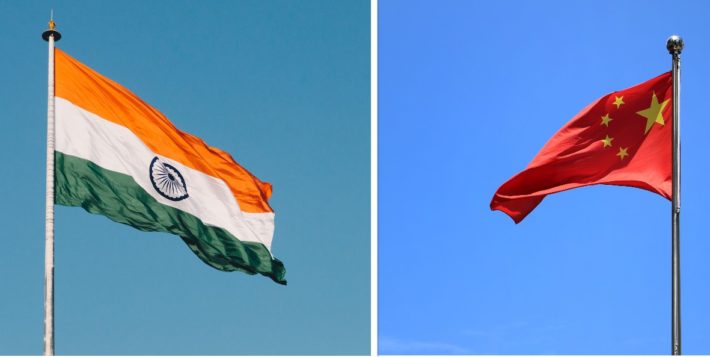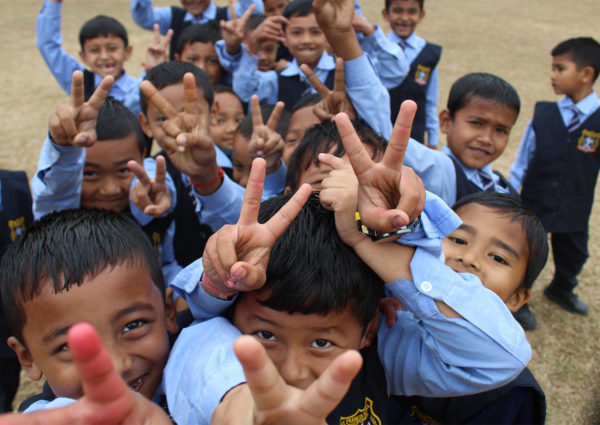India and China have started trading charges over the Galwan valley border row which climaxed with heavy casualties on both sides on June 15th 2020. Let us analyse why China has become belligerent in recent times and how strategically important the valley is for both the countries. But before that let’s acknowledge the fact that just as Indians despise Chinese soldiers for what had happened at patrol point 14, the Chinese will also feel likewise for the Indian soldiers. It is also important to recognize that none of the soldiers on either side acted for their personal interests; for they were not serving themselves but were soldiers representing their own countries. Therefore, in my view, the ones who are responsible for this fiasco are the ones who have been pulling the strings sub-rosa.
Galwan Valley is a geographically strategic point for India and China. The valley has been dormant to battle activity except during the Sino-Indian war in 1962. It is a crucial strategic point as it is situated between Aksai Chin (claimed by India but controlled by China since Sino-Indian war) and another contested territory Pangong tso. Nepal has prompted the end of diplomatic talks over Kalapani border row with the issuance of a new map incorporating three areas Lipulekh, Limpiadhura and Kalapani which were claimed by India. This has thus far increased the strategic importance of Galwan valley.
It had been just a week (June 7 2020) since the commander level diplomatic talks had ended between the Indian and Chinese People’s Liberation Army (PLA) officials. During the meet both the nations agreed to remove their camps and recede from Galwan valley. On the contrary, the PLA camps remained in the contentious area thus violating the earlier agreement. As per internal sources, the Indian army colonel along with his troupe went to patrol to ensure that the stipulations as part of the truce were maintained. He however was bewildered to see the Chinese camps still stationed instead of retreating. At this point personnel from both the sides indulged in a physical battle using clubs and iron rods that ensued a sequence of events thus resulting in heavy fatalities.
But what prompted India or China to make aggressive moves and twist whiskers at each other? Here are few of my insights:
- The abrogation of Article 370 and bifurcating Jammu and Kashmir into two union territories J&K and Ladhak was definitely the starting point. China has been very critical of this move and has also been raising this issue in all global platforms including the UN Security Council.
- Next, India had been consistently objecting to the Belt and Road (an initiative by China) taking place currently in parts of J&K (claimed by India but controlled by Pakistan).
- Now for the main factor: the Chinese angle within
-
- There has been a growing discontent among the Chinese people over Xi Jinping empowering himself. This was evident when he removed restrictions on the term of office and also replaced party cadres with loyalists.
- The impact of Covid-19 and the crisis that followed has worsened the confidence on Xi’s regime.
- Furthermore the recent slowdown in the economy has added to the discontent.
- The Chinese have been venting their discontent through mass protests. In view of these events, Xi can no longer afford to suppress this popular discontent using authoritarian methods.
- It is quite evident from all the above factors that the Chinese government is prompting wars to divert the people’s attention towards ‘saving face’ ideology as they call it. This radical ideology is similar to what they did earlier. It can be retraced by recollecting the Indo-China war of 1962 during which China invaded India. The war was a diversion created to withdraw people’s attention from the economic depression. At that time the economic dip was caused due to the brazen economic and industrial policies (enforced by Mao) along with famine that resulted in death toll to millions. It was Mao then and now it is Xi Jinping pulling strings.
- Xi had recently announced to the PLA to be ready for a war amid the border row even though the Covid-19 threat persisted.
- With the backdrop of KP Oli (the communist leader at Nepal) sharing a common ideology with the CCP, Xi has been silently compelling Nepal to falsely iterate its sovereignty over Kalapani.
- Not just with India, China has been promoting proxy wars and transgressions in many other parts of Asia as well.
What should India do?
It is high time India should empower itself with enough armament to protect its sovereignty. China’s imperialist attitude can be tamed only by hitting hard on its economy. One option is of boycotting Chinese goods to the maximum extent. This might send a strong message to the Chinese regime. India should draw inspiration from its freedom struggle to carry out a Swadeshi like campaign against China. An unbalanced trade with China might be tough for the market to sustain for a short time but greater good comes only when a mass campaign is organised on the lines of patriotism and nationalism.
India must use the international arena to expose China’s hidden agenda. The Mamallapuram Congress between Modi and Xi is now being criticized for it has failed to provide a solution through diplomacy. Be it at Nathu la or Doklam, China has always been reluctant to diplomatic talks albeit India has been reiterating its stance for a harmonious solution through diplomacy.
In my opinion, India should enhance its diplomatic ties with the global economic powers such as the G7 to check on this expansionist trend of China. The UN asking both the nations to maintain restraint, that along with USA venturing for a mediation can result in fruitful results in the near future. Sooner or later a change in the stance from bickering to benevolent on both sides is necessary to ensure no more soldiers’ lives are lost.
It is high time that China corrects its attitude towards its neighbors. China should also learn to respect the sovereignty and territorial integrity of other nations. Failing to do so will result in starting another war with the lives of soldiers at peril rather than the political officials.
Similar Posts
-
China’s Powerful Economy – Harshvardhan
One of the ideas I suggested in an earlier article was to boycott Chinese products. However before l
-
Sacrificing healthy environment for stronger economy – Harshvardhan
EIA’s role in making development sustainable and the government’s attempt to debase it August 11, 20
-
Sri Lankan crisis: A case study for India – Harshvardhan
“Where foreign capital has been sunk in a country, the administration of that country becomes at onc
-
Is this the poor India that we can or should help in development? – M.K. George SJ
Can/Should India resolve poverty? The above picture puts me to shame. It brings tears to my eyes but
-
Republic Day – Hard Core
Here are few responses from friends, family, and relatives across India: Alright, joke










